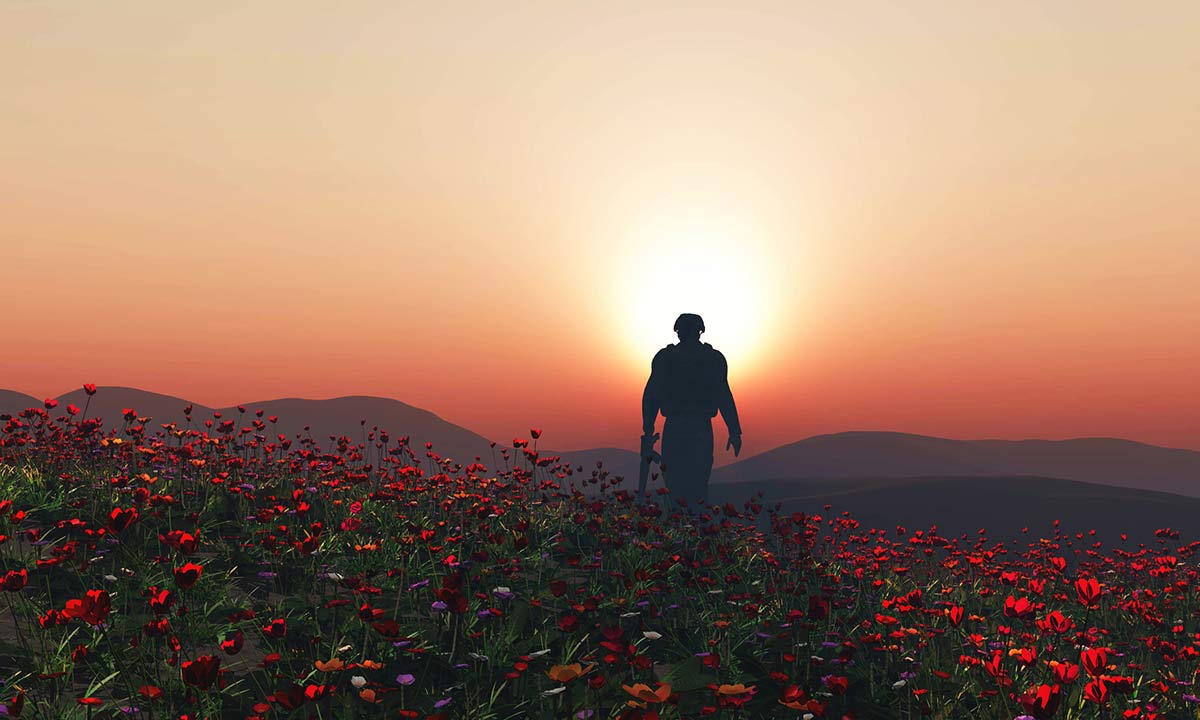It’s been more than 100 years since the guns went silent along the 700-kilometre-long Western Front, marking the end of four years of death and devastation. On a cool, overcast morning on the 11th of November, 1918, at precisely 11:00 a.m. the First World War finally came to an end.
Across Canada we mark this day differently. No matter where you find yourself on November 11th, here are 5 things you can do if you want to honour the legacies of those who gave everything to secure our freedom:
1. Wear a Poppy
Volunteers with the Royal Canadian Legion will appear in your community to give out poppies in exchange for donations starting the last Friday in October. The donations garnered from poppy sales support veterans and their families within that local community. Just be sure that you follow poppy protocol: The Legion recommends that you keep the pin it comes with rather than using a safety pin, that you wear it on your left lapel, and that you buy a new poppy every year to support our veterans.
Why We Wear Poppies:
Since after World War I, the poppy has been a symbol of remembrance for those who have served and given their lives in war. The poppy symbol comes from the poem, In Flanders Fields written by Canadian military doctor and artillery commander Major John McCrae.
“In Flanders fields the poppies blow
Between the crosses, row on row…”
McCrae wrote the poem the evening after having to provide burial service for a fellow Canadian serviceman.
Read the full text of In Flanders Fields.
2. Attend Your Community’s Remembrance Day Event
Most communities have events to commemorate Remembrance Day. These often take place at local memorial parks, community halls, workplaces, and schools. You can contact your local legion to find one in your community to attend.
3. Talk with Someone Who Fought
One of the best ways to commemorate the sacrifices of Canadian soldiers is to get a better understanding of the war experiences from someone you love. Talk to a friend, parent, uncle, aunt, or grandparent who fought or supported Canadian war efforts. It might be difficult for them to talk about their experiences so be patient. Those who have not fought in a war cannot begin to understand what it is like to do so.
4. Watch National Remembrance Day Ceremony
There are few things more moving than watching the National Remembrance Day Ceremony in Ottawa. If you’re in Ottawa, viewing the ceremony in person is an emotional experience, but watching it on TV or on The Royal Canadian Legion’s Facebook page is also very meaningful. The ceremony starts at 10:45 am EST and features a moment of silence at 11:00 EST.
5. Read a Book
If you’re interested in learning more about how Canadians served and died in World War I and II, you might want to read novels like The Wars by Timothy Findley, Three Day Road by Joseph Boyden, and The Stone Carvers By Jane Urquhart. Do you prefer non-fiction? Then check out At the Sharp End and Shock Troops by Tim Cook, both of which chronicle the stories of Canadians fighting in the First World War.
6. See a Play
Jake’s Gift is a Canadian play about a veteran’s return to Normandy for the 60th Anniversary of the D-Day landings. Debuting in 2007, Jake’s Gift has now played at festivals, schools and theatres in over 220 communities across Canada, and has won multiple awards. Jake’s Gift is an engaging, mesmerizing and authentic play, that will have you laughing, crying and completely captivated. This one-woman award-winning play is deserving of every standing ovation it gets. To see if Jake’s Gift will be visiting your community soon, visit www.jakesgift.com.
This article is intended as general information only and is not to be relied upon as constituting legal, financial or other professional advice. A professional advisor should be consulted regarding your specific situation. Information presented is believed to be factual and up-to-date but we do not guarantee its accuracy and it should not be regarded as a complete analysis of the subjects discussed. All expressions of opinion reflect the judgment of the authors as of the date of publication and are subject to change. No endorsement of any third parties or their advice, opinions, information, products or services is expressly given or implied by Royal Bank of Canada or any of its affiliates.



















